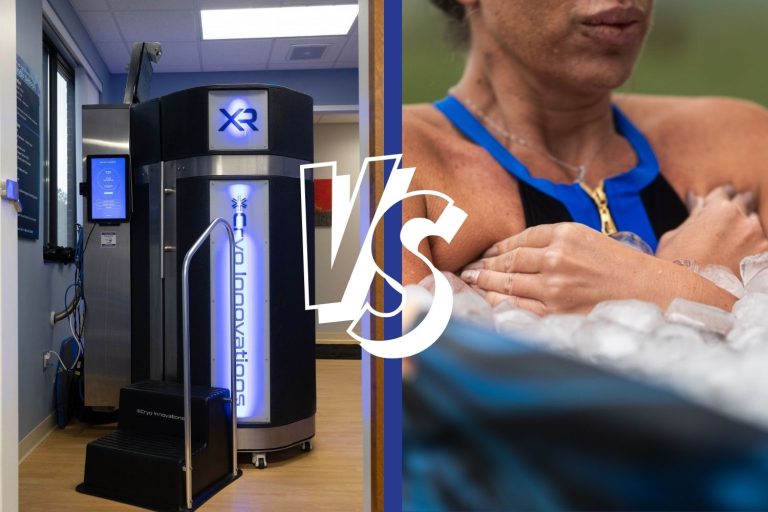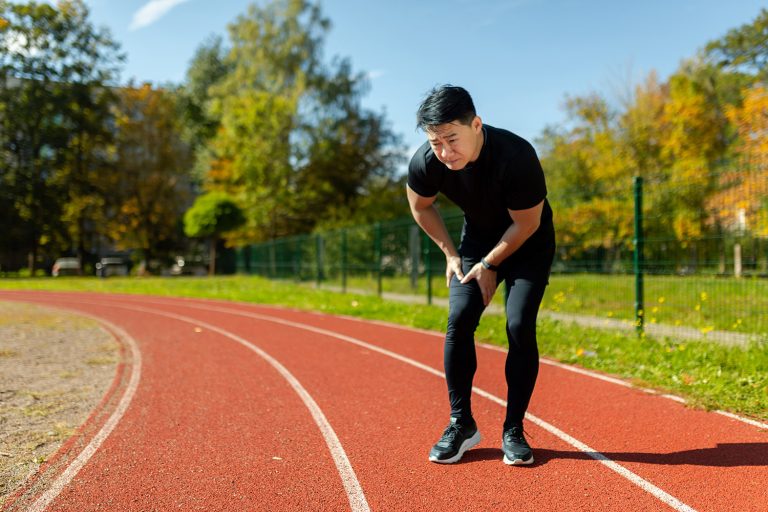

Mental Toughness
The Psychological Edge in Sports Performance
At Kinetic Physical Therapy and Wellness in Greenville, NC, we understand that achieving peak performance in sports goes beyond physical training. Mental toughness is a critical component that separates good athletes from great ones. Our one-on-one specialized therapy sessions focus not only on physical conditioning but also on building the psychological resilience needed for success. In this blog post, we will examine the mental aspects of sports performance and provide techniques to help athletes build mental resilience, focus, and confidence.
The Importance of Mental Toughness in Sports
Mental toughness refers to an athlete’s ability to perform under pressure, stay focused, and remain confident in the face of challenges. It encompasses resilience, concentration, emotional control, and self-belief. Here are some reasons why mental toughness is crucial for athletes:
Performance Under Pressure
High-pressure situations, such as competition finals or crucial game moments, test an athlete’s mental fortitude. Those with strong mental toughness can maintain their performance levels despite the stress and expectations.
Consistency
Consistent performance is key to long-term success in sports. Mentally tough athletes can deliver reliable results, regardless of external conditions or internal emotions.
Recovery from Setbacks
Injuries, losses, and failures are inevitable in sports. Mental toughness enables athletes to recover from setbacks quickly, learn from their experiences, and come back stronger.
Focus and Concentration
The ability to concentrate and maintain focus during training and competition is essential. Mental toughness helps athletes block out distractions and stay committed to their goals.
Confidence
Confidence is a cornerstone of mental toughness. Believing in one’s abilities and maintaining a positive mindset can significantly impact performance and outcomes.
Techniques to Build Mental Toughness
Building mental toughness requires intentional practice and a willingness to develop one’s psychological skills. Here are some effective techniques to enhance mental resilience, focus, and confidence:
Goal Setting
Setting clear, achievable goals provides direction and motivation. Athletes should set both short-term and long-term goals, focusing on the process rather than just the outcomes. Breaking down larger goals into smaller, manageable steps can help maintain focus and track progress.
Visualization and Imagery
Visualization involves mentally rehearsing successful performance scenarios. Athletes can use imagery to see themselves executing skills perfectly, overcoming obstacles, and achieving their goals. Regular visualization can boost confidence, reduce anxiety, and improve performance.
Positive Self-Talk
The language athletes use with themselves influences their mindset and performance. Positive self-talk involves replacing negative thoughts with encouraging and affirming statements. This practice helps build confidence, reduce stress, and maintain a positive attitude.
Mindfulness and Meditation
Mindfulness and meditation techniques can enhance focus, concentration, and emotional control. Practicing mindfulness involves staying present and fully engaged in the moment, while meditation can help calm the mind and reduce anxiety. These techniques improve mental clarity and resilience.
Breathing Exercises
Controlled breathing exercises can help manage stress and maintain composure under pressure. Techniques such as deep breathing, diaphragmatic breathing, and box breathing can lower heart rate, reduce tension, and enhance concentration.
Developing a Routine
Establishing a pre-performance routine can help athletes mentally prepare for competition. This routine might include physical warm-ups, mental rehearsals, and relaxation techniques. Consistent routines create a sense of familiarity and control, reducing pre-competition anxiety.
Building a Support Network
Having a strong support network of coaches, teammates, family, and friends provides emotional and practical assistance. Support networks offer encouragement, feedback, and perspective, helping athletes stay grounded and motivated.
Embracing Challenges
Viewing challenges as opportunities for growth rather than threats can enhance mental toughness. Athletes should adopt a growth mindset, where they see effort and perseverance as pathways to improvement. Embracing challenges fosters resilience and a willingness to take risks.
The Role of Mental Toughness in Different Sports
Mental toughness plays a significant role across various sports, with specific psychological demands depending on the nature of the sport. Here’s how mental toughness applies to different athletic disciplines:
Individual Sports
In individual sports like tennis, golf, or track and field, athletes often face intense pressure as their performance solely determines the outcome. Mental toughness helps them stay focused, manage self-doubt, and maintain motivation during solitary training sessions.
Team Sports
In team sports such as soccer, basketball, or football, athletes must work cohesively with their teammates while managing interpersonal dynamics and pressure. Mental toughness aids in effective communication, leadership, and maintaining a positive team culture.
Endurance Sports
Endurance sports like marathon running, cycling, or swimming require sustained mental and physical effort over long periods. Mental toughness helps athletes push through physical discomfort, maintain focus, and stay mentally strong during prolonged exertion.
Combat Sports
Combat sports like boxing, wrestling, or martial arts demand intense mental focus, quick decision-making, and emotional control. Mental toughness enables athletes to stay composed, strategize effectively, and handle the physical and psychological demands of combat.
Mental toughness is a crucial element in achieving athletic excellence. At Kinetic Physical Therapy and Wellness, we focus on developing both the physical and psychological aspects of performance. By incorporating goal setting, visualization, positive self-talk, mindfulness, and other mental training techniques, athletes can build the resilience, focus, and confidence needed to excel in their sports. Whether you’re an aspiring athlete or a seasoned professional, investing in mental toughness will provide you with the psychological edge to overcome challenges and reach your full potential. If you’re ready to enhance your mental game, contact Kinetic Physical Therapy and Wellness today to learn more about our personalized programs.
Please Share
categories
Recent Posts

Mental Toughness
The Psychological Edge in Sports Performance
At Kinetic Physical Therapy and Wellness in Greenville, NC, we understand that achieving peak performance in sports goes beyond physical training. Mental toughness is a critical component that separates good athletes from great ones. Our one-on-one specialized therapy sessions focus not only on physical conditioning but also on building the psychological resilience needed for success. In this blog post, we will examine the mental aspects of sports performance and provide techniques to help athletes build mental resilience, focus, and confidence.
The Importance of Mental Toughness in Sports
Mental toughness refers to an athlete’s ability to perform under pressure, stay focused, and remain confident in the face of challenges. It encompasses resilience, concentration, emotional control, and self-belief. Here are some reasons why mental toughness is crucial for athletes:
Performance Under Pressure
High-pressure situations, such as competition finals or crucial game moments, test an athlete’s mental fortitude. Those with strong mental toughness can maintain their performance levels despite the stress and expectations.
Consistency
Consistent performance is key to long-term success in sports. Mentally tough athletes can deliver reliable results, regardless of external conditions or internal emotions.
Recovery from Setbacks
Injuries, losses, and failures are inevitable in sports. Mental toughness enables athletes to recover from setbacks quickly, learn from their experiences, and come back stronger.
Focus and Concentration
The ability to concentrate and maintain focus during training and competition is essential. Mental toughness helps athletes block out distractions and stay committed to their goals.
Confidence
Confidence is a cornerstone of mental toughness. Believing in one’s abilities and maintaining a positive mindset can significantly impact performance and outcomes.
Techniques to Build Mental Toughness
Building mental toughness requires intentional practice and a willingness to develop one’s psychological skills. Here are some effective techniques to enhance mental resilience, focus, and confidence:
Goal Setting
Setting clear, achievable goals provides direction and motivation. Athletes should set both short-term and long-term goals, focusing on the process rather than just the outcomes. Breaking down larger goals into smaller, manageable steps can help maintain focus and track progress.
Visualization and Imagery
Visualization involves mentally rehearsing successful performance scenarios. Athletes can use imagery to see themselves executing skills perfectly, overcoming obstacles, and achieving their goals. Regular visualization can boost confidence, reduce anxiety, and improve performance.
Positive Self-Talk
The language athletes use with themselves influences their mindset and performance. Positive self-talk involves replacing negative thoughts with encouraging and affirming statements. This practice helps build confidence, reduce stress, and maintain a positive attitude.
Mindfulness and Meditation
Mindfulness and meditation techniques can enhance focus, concentration, and emotional control. Practicing mindfulness involves staying present and fully engaged in the moment, while meditation can help calm the mind and reduce anxiety. These techniques improve mental clarity and resilience.
Breathing Exercises
Controlled breathing exercises can help manage stress and maintain composure under pressure. Techniques such as deep breathing, diaphragmatic breathing, and box breathing can lower heart rate, reduce tension, and enhance concentration.
Developing a Routine
Establishing a pre-performance routine can help athletes mentally prepare for competition. This routine might include physical warm-ups, mental rehearsals, and relaxation techniques. Consistent routines create a sense of familiarity and control, reducing pre-competition anxiety.
Building a Support Network
Having a strong support network of coaches, teammates, family, and friends provides emotional and practical assistance. Support networks offer encouragement, feedback, and perspective, helping athletes stay grounded and motivated.
Embracing Challenges
Viewing challenges as opportunities for growth rather than threats can enhance mental toughness. Athletes should adopt a growth mindset, where they see effort and perseverance as pathways to improvement. Embracing challenges fosters resilience and a willingness to take risks.
The Role of Mental Toughness in Different Sports
Mental toughness plays a significant role across various sports, with specific psychological demands depending on the nature of the sport. Here’s how mental toughness applies to different athletic disciplines:
Individual Sports
In individual sports like tennis, golf, or track and field, athletes often face intense pressure as their performance solely determines the outcome. Mental toughness helps them stay focused, manage self-doubt, and maintain motivation during solitary training sessions.
Team Sports
In team sports such as soccer, basketball, or football, athletes must work cohesively with their teammates while managing interpersonal dynamics and pressure. Mental toughness aids in effective communication, leadership, and maintaining a positive team culture.
Endurance Sports
Endurance sports like marathon running, cycling, or swimming require sustained mental and physical effort over long periods. Mental toughness helps athletes push through physical discomfort, maintain focus, and stay mentally strong during prolonged exertion.
Combat Sports
Combat sports like boxing, wrestling, or martial arts demand intense mental focus, quick decision-making, and emotional control. Mental toughness enables athletes to stay composed, strategize effectively, and handle the physical and psychological demands of combat.
Mental toughness is a crucial element in achieving athletic excellence. At Kinetic Physical Therapy and Wellness, we focus on developing both the physical and psychological aspects of performance. By incorporating goal setting, visualization, positive self-talk, mindfulness, and other mental training techniques, athletes can build the resilience, focus, and confidence needed to excel in their sports. Whether you’re an aspiring athlete or a seasoned professional, investing in mental toughness will provide you with the psychological edge to overcome challenges and reach your full potential. If you’re ready to enhance your mental game, contact Kinetic Physical Therapy and Wellness today to learn more about our personalized programs.
Please Share







